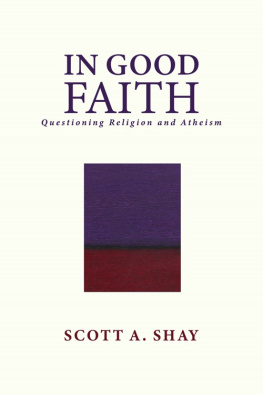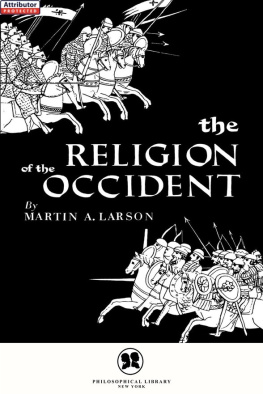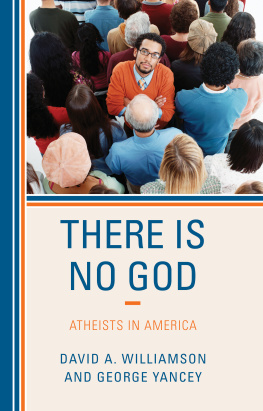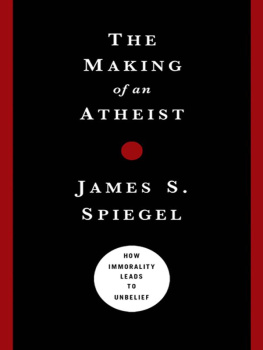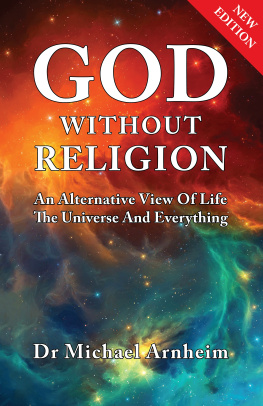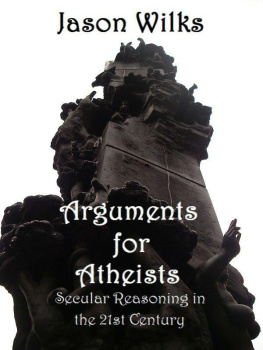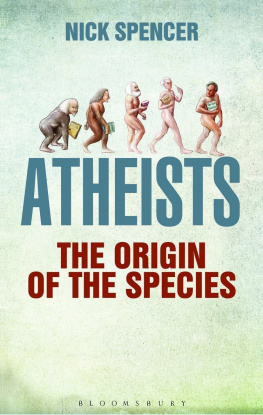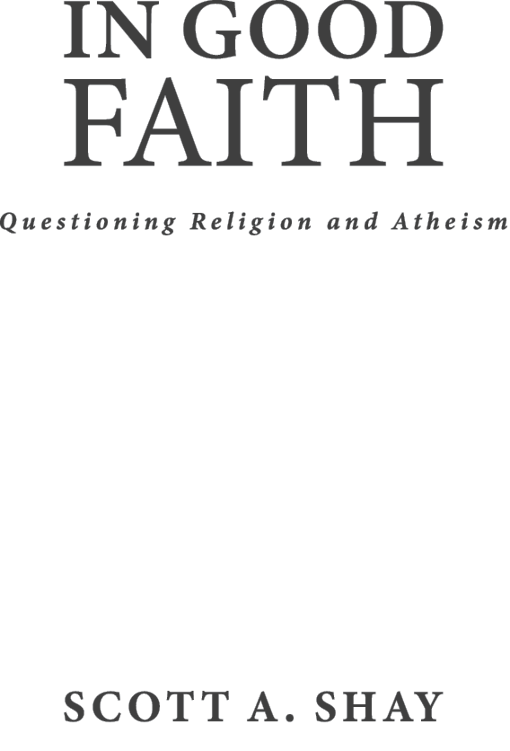
CHAPTER 2
The Prison Break
When you present the idea of one God, it actually causes friction and challenges the powers-that-be.
CHAPLAIN TAHERA AHMAD
T he great innovation of the Bible was to challenge the lies about power that defined ancient idolatry. The story of the Exodus was that challenge. As the Bible tells it, the migration of the descendants of Jacob to the center of the ancient world, Egypt, served Gods ultimate purpose. It led to a confrontation between the Israelites and what was then the greatest idolatrous nation of the time in the greatest showdown in history. In the narrative, the actions each of Joseph, Moses, and God in sequence directly contest the idolatrous worldview of the Egyptians. Gods revealed laws at the time of the Exodus were meant to provide a blueprint for a just society. Unlike what Yuval Harari claims in Sapiens , or Steven Pinker writes in The Better Angels of Our Nature , the Exodus (and the entire Bible for that matter) is not like any other ancient idolatrous myth in the service of selfish elites. One would never know, though, from their writings, or from those of other atheists, that many scholars hold this view. Thus for those who want a challenge to this widely held but demonstrably false perspective (and many false ideas have had a long shelf life, even among very clever people), this chapter is for you. For skeptical readers, the question of whether the events of the Bible could have occurred will be addressed in part five, but even if they did not, the message is still revolutionary.
Exodus: Liberation Demonstration and Performance Art
The Exodus story actually begins in the Book of Genesis with the story of Joseph. Sold by his brothers into slavery and left to rot in an Egyptian jail, Joseph came to bring the first ray of light of Abrahamic monotheism to the rest of the ancient world. Having been told of Josephs gift for interpreting the dreams of his cellmates accurately, Pharaoh offered Joseph an opportunity to take his talents to the palace. Dream interpretation was a form of omen-reading familiar to the priestly classes, but Joseph was quick to distinguish between his outlook and that of the court magicians:
And Pharaoh said to Joseph, I have had a dream, but no one can interpret it. Now I have heard it said of you that for you to hear a dream is to tell its meaning. Joseph answered Pharaoh, saying, Not I, but God will see to Pharaohs well-being. (Genesis 41:1516) Joseph continued to explain how, through the dream, God has told Pharaoh what he is about to do. (Genesis 41:25)
Josephs intent was to chip away ever so subversively at the magicians power by introducing the idea of Gods omniscience and Pharaohs subordination to God. Jacobs other sons soon settled in Egypt where, initially, they lived in peace and multiplied thanks to Pharaohs magnanimity and sense of indebtedness to Joseph. However, as the Bible records, with Josephs death, a new pharaoh quickly and all too conveniently forgot his predecessors debt of gratitude to Joseph and to God. (Reminds me of some folks I met on Wall Street.) The new king, as idolatrous leaders do, began to exert his power through abuse and enslavement of the Jews under the pretext that they had become too numerous and might rebel. (Exodus 1:10) He decreed death to all newborn Hebrew boys and enlisted the entire Egyptian population, fearful and compliant, in his murderous plan. Nonetheless, an independent-minded Pharaohs daughter (likely skeptical of her fathers divinity) was unafraid. One day she plucked out of the water an Israelite boy hidden in a basket among the reeds and raised him in the palace.
Only two others, both Hebrew midwives, feared Gods power more than Pharaohs and refused to murder the children. But when the midwives had to answer to Pharaoh, they did not argue that it was wrong to murder the infants. They simply pleaded that they had been thwarted by the speedy birthing methods of the Israelite mothers who just kept popping them out (Exodus 1:19), while the midwives only arrived in time to collect the fee. Had they protested more openly, they would have been executed. Pharaohs lust for power and its accompanying political and social ills were in full swing. Unbeknownst to him, though, his daughter had brought into the royal household an infant who would grow into the royal houses greatest adversary. Moses, she had named him. The monotheistic revolution that would see full bloom when the child grew to adulthood, though as of yet underground, had now begun.
Ultimately, Moses would challenge Pharaoh to let the Israelites worship God. Egypt turned into the scene of an awe-inspiring demonstration project against idolatrythink Super Bowl, World Cup, and Olympics all rolled into one. Moses became the center of this revolution. Unlike todays slick politicians, he was neither arrogant nor a great public speaker. He needed no Gallup Organization to poll-test his platform. Moses had guts. He dared to question Pharaoh, the god-king, in the name of the one true God, and all for the sake of a slave population, no less. Mosess staunch opposition to the status quo, in favor of the lowest of all social groups and in the name of the one all knowing, all powerful, and all good God, undercut the presumed legitimacy of Pharaohs oppressive political and social system. Pharaoh refused and refuted Moses as expected, charging, Who is the Lord that I should heed Him and let Israel go? I do not know the Lord, nor will I let Israel go. (Exodus 5:2) Pharaoh understood only his own will and power.
The showdown had begun and Gods purpose was clear. The Biblical text is explicitthe Israelites deliverance from the Egyptians had a two-fold purpose: that both Israel (Exodus 6:6) and Egypt should know that I am the Lord. (Exodus 7:5) As events unfolded, Moses began demonstrating Gods power through signs and wonders. This strategy was necessary to prove the extent of Gods strength, or omnipotence, to a society obsessed with magic. And it worked, with tragic results. Pharaoh refused Gods request and therefore allowed his own people to be harmed. But even more shockingly, he asked his magicians to harm them a second time to show that they were just as powerful as God. The competition between Moses and the court magicians ended with the magicians unable to replicate the plagues. (The Bible was so allergic to magic that, as we shall see in part four, Moses lost his right to enter the land when he gave the false impression of drawing water from a rock by magic, by failing to invoke Gods name.) Yet Pharaoh still did not relent, and so God punished the Egyptians measure for measure for their complicity in upholding such an idolatrous society. The plagues, thus, delivered a foreboding message to the Egyptians in the very heart of world idolatry: your Pharaoh is not a God. The one true God exacts retribution for abuse of power against others for gain. Those who do not oppose idolatry in fact support it.
After the last of the plagues, the Israelites feasted on slaughtered lamb, considered an Egyptian deity, and thereby put a nail in the coffin of Egyptian idolatry. But, according to Jewish tradition, this demonstration of divine power was still not enough for Pharaoh. Only when his army drowned in the sea did the king of Egypt finally admit defeat. Each step along the way in the process of the Exodus undermined the idolatrous matrix of Pharaohs deifications, the priests power, and their combined oppression of others. In the end, freedom defeated domination, justice overwhelmed raw power, and human initiative coupled with divine assistance dispelled the myth of fate.
Yet, even the disruptive message of the Exodus was insufficient to inculcate the Israelites, the Egyptians, or bystander nations with this revolutionary new worldview. Idolatry remained too powerful in the imagination and served too many interests. Thus, to further propound the message of monotheism, the one God soon revealed to the Israelites the laws and teachings that make up the content of the Bible. The idea was simple enough. The Israelites would follow these laws and teach the rest of the world their moral efficacy through example. Among the first of these revealed laws came the Ten Commandments. They were short and snappy, easy for the Israelites to remember. Once learned, they were intended to be applied unreservedly to all circumstances of life and society.
Next page
